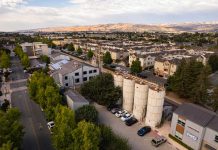Many people are passionate about preserving farming, and they try to achieve their goal with land-use restrictions that aim to keep parcels currently used for agriculture permanently used for that purpose. It’s an expensive, primarily for the landowner, and ineffective effort.
We can impose restrictions on all of the land in Santa Clara County, but it will not result in it remaining used or useful for farming.
Economic realities must be considered when trying to preserve farming. Much of the agricultural land in this county is currently not used for farming for two major reasons: quality of life and economics.
The lifestyle associated with earning a living from farming is less desirable for many people than the lifestyle associated with working at a high-paying high-tech job, resulting in the fewer people who want to farm. When they compare spending their days in comfortable climate-controlled workspaces with outdoor fields and extreme weather conditions, many people choose the former. Which do you prefer?
Thankfully, many are still drawn to the farming lifestyle. But those who posses the desire and willingness to farm are facing tough competitive pressures in today’s global economy. To stay competitive, farmers must increase efficiencies and decrease costs. This leads to specialization and larger farms. Specializing in one or two crops can increase efficiency but also has increased risk due to fluctuating prices and crop failures.
Farm sizes are limited in our area due to our geography. As cities grow and suburbanites and farmers become neighbors, many agricultural uses – like ranches with chickens and cows and mushroom farms – are forced out. It turns out that many people want a picturesque rural view but don’t like the real-life smells, sounds and sights of farming. Ag preservation brings to mind acres of row crops and orchards, not acres of frames draped with plastic sheeting, spraying for pest control and pungent odors.
So, the question is this: Do land-use restrictions preserve farming? We can preserve land but it has been very apparent that we can’t preserve farms.
Many lament our diminishing farmland acreage. However, farm products continue to be affordable and available. This is a direct result of the increased efficiencies of areas such as California’s Central Valley.
If we restrict lands so that they can only be used for agriculture, what happens when cities grow around them? The result is islands of unused land that become blight and a burden of landowners. Economic realities make the land unusable for farming, but land-use restrictions make it undevelopable for commercial or residential use. Cities are forced to sprawl around these ag-use-only parcels.
Preserving farming requires artificial economic fixes, not land-use restrictions. These fixes can make it economically viable to farm, but we must understand that these fixes interfere with free market conditions. Consumers will pay for these artificial fixes with either higher prices for agricultural products like produce and meat or with higher taxes.
When we consider artificial economic fixes to preserve farming, we must consider opportunity cost: How else could that money be spent? We are already short of funds to provide emergency services and health care. Public transportation projects that promise environmental benefits are underfunded. Schools, the homeless, and our social security system have gaping needs.
Instead of advocating ineffective and expensive land-use restrictions, those who are truly committed to farm preservation should purchase farmland instead of placing the economic burden on current landowners or taxpayers to keep these lands used for farming.
Chris Bryant has lived in Morgan Hill for more than 29 years and makes his living as a commercial realtor. He works on development of high-tech computer-based products. He’s a member of the board of directors of the Morgan Hill Chamber of Commerce as well as the Knights of Columbus. He’s also a member of the Morgan Hill Times Editorial Board.







